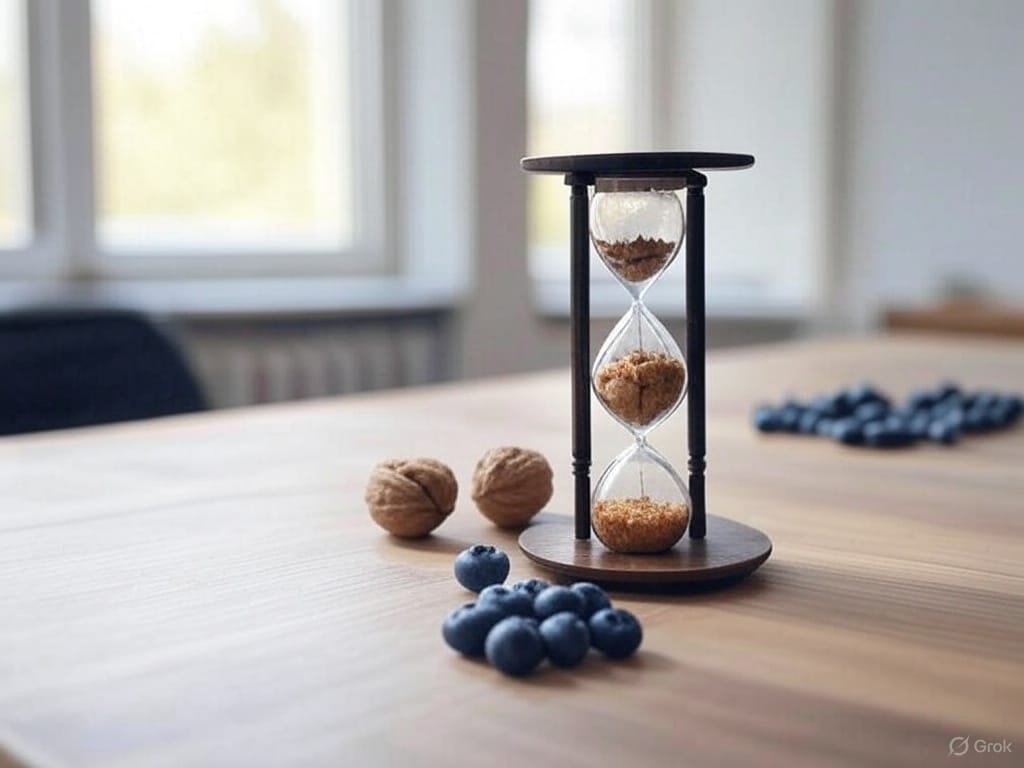Focus Like a Pro
Mastering focus in a distracted world starts with simple, science-backed strategies like the Pomodoro Technique, distraction-free zones, and brain-boosting foods to reclaim your attention and supercharge productivity.

In a world buzzing with notifications, social media, and endless to-do lists, staying focused feels like a superpower. Yet, the ability to concentrate is the key to unlocking productivity, creativity, and progress toward your goals. You don’t need ironclad willpower to master focus—just practical habits that work with your brain, not against it. In this article, we’ll share science-backed strategies like the Pomodoro Technique, distraction-free environments, and brain-boosting nutrition to help you cut through the noise and achieve more in less time.
Why Focus Matters
Focus isn’t just about getting things done—it’s about working smarter. When you’re fully present, your brain operates at peak efficiency, solving problems faster and producing better results. Research shows multitasking can slash productivity by up to 40%, while single-tasking in a state of “flow” makes work feel effortless and time fly by.
The catch? Our environment is built to distract us. Emails, phone pings, and wandering thoughts constantly compete for attention. Mastering focus means training your mind to prioritize what matters most. Here’s how to do it.
The Pomodoro Technique: Work Smarter, Not Longer
The Pomodoro Technique, developed by Francesco Cirillo in the 1980s, is a simple way to boost concentration. It leverages your brain’s natural attention cycles with short, intense work bursts followed by breaks. Here’s the breakdown:
- Pick a task.
- Set a timer for 25 minutes (one “Pomodoro”).
- Work with full focus until the timer rings.
- Take a 5-minute break.
- After four Pomodoros, take a 15-30 minute break.
This method works because attention naturally dips after 20-40 minutes, per cognitive research. The timer creates urgency, keeping you on track, while breaks prevent burnout. For best results, use a tool like TomatoTimer or Focus@Will and write down a specific goal for each session (e.g., “Draft 300 words” or “Review one chapter”). Over time, you’ll train your brain to snap into focus mode effortlessly.
Pro Tip: If 25 minutes feels too short, experiment with 50-minute sessions and 10-minute breaks to suit your rhythm.
Create Distraction-Free Environments
Even the most disciplined mind struggles in a chaotic setting. Crafting distraction-free zones—physical, digital, and mental—sets you up for success.
Physical Space
Clear your desk of clutter, keeping only essentials like your laptop, a notebook, and water. A tidy workspace signals “time to work.” If noise is an issue, try noise-canceling headphones or instrumental playlists (classical or lo-fi beats boost alertness, per studies). Position your desk near natural light to enhance mood and focus.
Digital Space
Your phone and apps are distraction magnets. Silence non-essential notifications and consider apps like Forest or Freedom to block social media during work hours. If temptation persists, place your phone in another room—out of sight, out of mind.
Mental Space
Before starting a task, clear mental clutter. Jot down stray thoughts like “schedule meeting” or “buy milk” to free cognitive space. Try a 1-minute mindfulness exercise: close your eyes, take five slow breaths, and visualize crushing your task. This primes your brain for deep focus.
For ADHD or High-Stress Settings: If distractions feel overwhelming, start with shorter Pomodoro sessions (e.g., 15 minutes) or use a visual cue like a “focus mode” sign on your desk to stay grounded.
Fuel Your Brain with Focus-Friendly Foods
Your diet directly impacts your ability to concentrate. Heavy meals or sugar spikes cause sluggishness, while nutrient-rich foods keep your mind sharp. Here’s what to prioritize:
- Healthy Fats: Your brain, nearly 60% fat, loves omega-3s from salmon, walnuts, or flaxseeds (for plant-based diets). These support memory and focus.
- Complex Carbs: Oats, quinoa, or sweet potatoes provide steady energy, avoiding the crashes of refined sugars.
- Protein: Eggs, Greek yogurt, or lentils supply amino acids for neurotransmitters like dopamine, which boosts alertness.
- Hydration and Antioxidants: Sip water all day—dehydration impairs focus. Snack on blueberries or dark chocolate (70%+ cocoa) for cognitive-enhancing antioxidants.
Sample Snack: Blend a focus-friendly smoothie with spinach, avocado, blueberries, and chia seeds for a mid-morning boost. Avoid overdoing caffeine, which can make you jittery instead of focused.
Build a Focus-First Lifestyle
Long-term focus requires consistent habits. Start with one distraction-free hour daily and gradually increase it. Add these to your routine:
- Exercise: A 20-minute walk boosts brain function, per research.
- Meditation: A 5-minute mindfulness practice strengthens attention spans.
- Prioritize: Say “no” to low-value tasks to protect your time.
Audit your commitments weekly to avoid overextending yourself. If you’re a student, use Pomodoro for study sessions; if you’re a professional, block focus time for high-priority projects.
Your 7-Day Focus Challenge
Ready to take control? Try this:
- Day 1: Test one 25-minute Pomodoro session.
- Day 2: Clear your desk and silence notifications for an hour.
- Day 3: Swap a sugary snack for walnuts or an apple with peanut butter.
- Day 4: Try the 1-minute mindfulness exercise before a task.
- Day 5: Use an app like Forest to block distractions for two hours.
- Day 6: Take a 20-minute walk before work or study.
- Day 7: Reflect on what worked and plan your next focus goal.
Own Your Attention
Focus isn’t about perfection—it’s about progress. Life will throw distractions your way, but with tools like the Pomodoro Technique, distraction-free environments, and brain-boosting foods, you can bounce back stronger. Pick one strategy today—maybe a Pomodoro sprint or a handful of blueberries—and start building your focus muscle. In a distracted world, the ability to concentrate is your ultimate edge.





